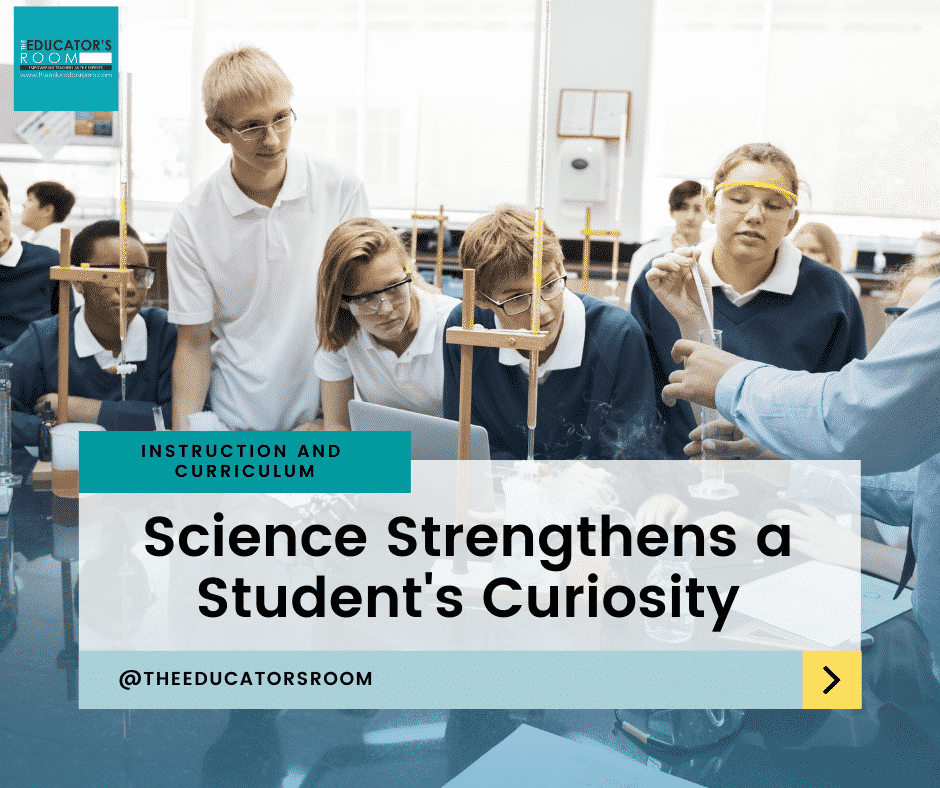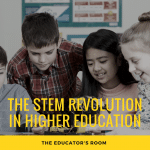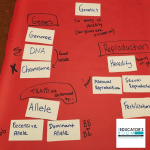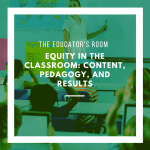Have you signed up for The Educator’s Room Daily Newsletter? Click here and support independent journalism!
Science strengthens a child’s curiosity and enables them to grow and discover the world around them. It is the backbone of every discovery in our world and is responsible for past innovations which have made our lives simpler. Science phenomena happen as a direct result of someone’s curiosity. Learning about Science is important because it encourages students to stay curious about the world around them.
Walt Disney once said, “We keep moving forward, opening new doors, and doing things because we’re curious, and curiosity keeps leading us down new paths.” I believe we can all connect with that sentiment and remember a time in our life when our curiosity moved us in a different direction than we originally intended. Writing this article is a prime example of how my curiosity led me to embrace the idea of curiosity in my science classroom.
Curiosity is the prelude to making the unknown known. It is defined in the Merriam-Webster Dictionary as the desire to learn or know more about something or someone. Albert Einstein once said, “I have no special talent; I am only passionately curious.” Of course, we are all born with a certain level of curiosity. It helps us learn and grow, but are we all born with that same level of passionate curiosity that Einstein describes, that lust to know the unknown?
Born to Be Curious
Babies are naturally curious, exploring first with their eyes, then with their hands, and in time with their voices, questioning everything around them. Even in the first few days of her life, I distinctly remember my daughter following me with her eyes. In those big eyes, I could almost hear her questions as clear as if she were speaking the words to me. Next, that curiosity gradually moved to her hands as she wanted to touch and feel everything. Finally, her curiosity grew into a voice that questioned everything and ultimately was the first step on her path to becoming a life-long learner.
As an educator, I have learned the value of a curious mind and the importance of embracing curiosity by letting those curious voices be heard. Over the years, I have learned that the most meaningful lessons are those that often veer off course. The ones start with a curious question and spark authentic teaching that effortlessly blends into authentic learning. These are the kinds of lessons you reflect on as an educator. Lessons that serve as a reminder of why you love what you were called to do. I have found the perfect setting in teaching Science, a safe place for my students to embrace their curiosity and never stop questioning.
Encouraging Exploration
When teachers encourage students to be more curious and explore their curiosity, they are teaching students to be active participants in their learning—often resulting in more profound learning experiences. Embracing a child’s curiosity strengthens problem-solving and critical thinking skills needed for success in life. A recent article in Frontiers in Psychology states that “Curiosity can motivate information-seeking behavior, which leads to question-asking and other information-seeking behaviors which can activate previous knowledge and support the deeper learner.” This statement is true for my students, but on many occasions has proven true for me as well.
One of my 4th-grade students is fascinated with the Axolotl, a cute but albeit strange-looking salamander native to Mexico. I had never heard of this animal, and P was very excited to tell me all the facts he knew. My interest was naturally piqued. I was motivated to seek more information. My questions led me on a path to discovery. The kids were excited not only to learn something new but also to learn something new with their teacher. Together, our curiosity grew as we discovered more information about this wonder of nature. What started as a simple question became a great class discussion that evolved into an authentic learning experience that I will always remember.
Staying Curious
Encouraging students to stay curious throughout their lives should be a goal for every teacher. I recently watched the famed astrophysicist Neil deGrasse Tyson’s Masterclass. I was intrigued when I heard him say that he believes “the most important thing you can be in life is curious. Curious about things you don’t know, curious about things you do know, or that you think you know, but there’s more to learn about it. Curious about how other people think differently than how you think.”
He described a style of teaching where he cultivates curiosity in his students. He further explained that authentic learning happens when the instructor sustains interest by providing just a “taste” of information. Stimulating a person’s curiosity will cause them to find the best information on their own. As educators, we know that students learn best when actively participating in their learning. Stoking their curiosity is key to this type of exploration.
The Path to Success
As I continued my research on this topic, Neil deGrasse Tyson’s words echoed in my mind. I now believe that being curious could be the most critical thing in life. It so often leads you down the path of discovery and, at times, to success. A recent Forbes article, “Harnessing Curiosity in Employees, Contributes to Business Success,” written by Bryan Robinson, Ph.D., focused on a study by SAS Curiosity@workreport (Here.) The 2021 study found that curiosity is a trait that is directly correlated with success, and business “managers consider curiosity a precious trait.” In addition, the study showed how “curiosity is a rising focus” across the LinkedIn platform. It also credits curiosity for improved job satisfaction and generating a collaborative and productive work environment.
Embracing curiosity in our elementary science classrooms is a vital part of learning that will enable students to succeed in their academic life and beyond. Instilling a passionate interest that will sustain them beyond their academic years may empower them with a dash of opportunities and endless possibilities.

Researched Articles/Videos
MasterClass. (2021, May 27). Inspire curiosity in your audience. MasterClass. Retrieved January 26, 2022, from https://www.masterclass.com/classes/neil-degrasse-tyson-teaches-scientific-thinking-and-communication/chapters/inspire-curiosity-in-your-audience
Jirout, J. J. (1AD, January 1). Supporting early scientific thinking through curiosity. Frontiers. Retrieved January 26, 2022, from https://www.frontiersin.org/articles/10.3389/fpsyg.2020.01717/full#h3
Curiosity@Work report. SAS. (n.d.). Retrieved January 26, 2022, from https://www.sas.com/en_us/curiosity/at-work.html
(PDF) curiosity in schools – researchgate. (n.d.). Retrieved January 26, 2022, from https://www.researchgate.net/publication/329569586_CURIOSITY_IN_SCHOOLS
Wu, R. (n.d.). How curiosity paved the way to self-learning. Ray Wu: How curiosity paved the way to self-learning | TED Talk. Retrieved January 26, 2022, from https://www.ted.com/talks/ray_wu_how_curiosity_paved_the_way_to_self_learning





